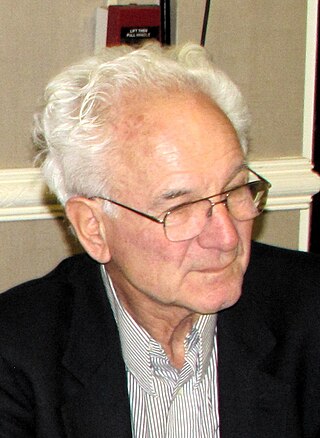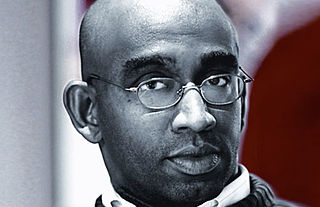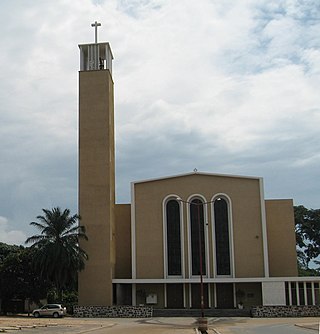Related Research Articles

Peter H. Duesberg is a German-American molecular biologist and a professor of molecular and cell biology at the University of California, Berkeley. He is known for his early research into the genetic aspects of cancer. He is a proponent of AIDS denialism, the claim that HIV does not cause AIDS.

Thabo Mvuyelwa Mbeki is a South African politician who served as the second president of South Africa from 14 June 1999 to 24 September 2008, when he resigned at the request of his party, the African National Congress (ANC). Before that, he was deputy president under Nelson Mandela from 1994 to 1999.
The following lists events that happened during 2001 in South Africa.

Edwin Cameron is a retired judge who served as a Justice of the Constitutional Court of South Africa. He is well known for his HIV/AIDS and gay-rights activism and was hailed by Nelson Mandela as "one of South Africa's new heroes". President Ramaphosa appointed him as Inspecting Judge of Correctional Services from 1 January 2020 and in October 2019 he was elected Chancellor of Stellenbosch University.

Hinduism is practised throughout South Africa, but primarily in KwaZulu-Natal. Approximately 1.1% of the South African population professed to be Hindu, according to the 2011 census. This is down from the 1.4% based on the 1996 census. The 2016 General Household Survey measured a further decline to 0.9%.

Black Skin, White Masks is a 1952 book by philosopher-psychiatrist Frantz Fanon. The book is written in the style of autoethnography, with Fanon sharing his own experiences while presenting a historical critique of the effects of racism and dehumanization, inherent in situations of colonial domination, on the human psyche.

Nozizwe Charlotte Madlala-Routledge is a South African politician who was South Africa's Deputy Minister of Defence from 1999 to April 2004 and Deputy Minister of Health from April 2004 to August 2007. President Thabo Mbeki dismissed her from the Cabinet on 8 August 2007, after which she maintained her role as a member of parliament representing the African National Congress. On 25 September 2008, she became Deputy Speaker of the National Assembly, serving in that capacity until resigning from Parliament in early May 2009. She has been a member of the South African Communist Party since 1984.
Ato Sekyi-Otu is a Ghanaian political philosopher. He was born at Saltpond, Ghana in 1941 and until 1971 was known as Daniel Sackey Walker. He was educated at Mfantsipim School, Cape Coast, where he was Head Prefect in 1960-61 and completed his Cambridge Higher School Certificate in 1961 with distinctions in Greek and Latin. He went to Harvard and received an A.B. in Government in 1966. He pursued graduate studies at the University of Toronto where he worked with the renowned Canadian political theorist C.B. Macpherson and received his PhD in 1971.

Ronald Suresh Roberts is a British West Indian biographer, lawyer and writer. He is best known for his biographies of some of the leading figures in the "New South Africa" such as Nobel Prize winner Nadine Gordimer and former South African President Thabo Mbeki. Roberts has been described by Nelson Mandela as "a remarkable and dynamic young man". He currently lives in London, England.

Christianity is the dominant religion in Lesotho, with Protestantism and Catholicism being its main denominations.

Religion in Burundi is diverse, with Christianity being the dominant faith. Catholicism is the largest Christian denomination in the country.
Stephen D. Glazier is an American anthropologist who specializes in comparative religion. Currently, he is a Senior Research Anthropologist at the Human Relations Area Files at Yale University. Since 1976, Glazier has conducted ethnographic fieldwork on the Caribbean island of Trinidad focusing on the Spiritual Baptists, Orisa, and Rastafari. He also publishes on Caribbean archaeology and prehistory. Glazier cataloged Irving Rouse's St. Joseph (Trinidad) and Mayo (Trinidad) collections for the Peabody Museum of Natural History. In 2017, Glazier retired as professor of anthropology and Graduate Faculty Fellow at the University of Nebraska, where he taught classes in general (four-field) anthropology, race and minority relations, and a graduate seminar on the anthropology of belief systems.
Limbum is a Grassfields language of Cameroon, with a small number of speakers in Nigeria. It is used as a trade language by some, but is primarily the mother tongue of the Wimbum people, who live in Donga-Mantung division of the Northwest Region, at the top of the Ring Road.

Christianity is the dominant religion in South Africa, with almost 80% of the population in 2001 professing to be Christian. No single denomination predominates, with mainstream Protestant churches, Pentecostal churches, African initiated churches, and the Catholic Church all having significant numbers of adherents. Importantly, there is significant and sustained syncretism with African Traditional Religion among most of the self-professed Christians in South Africa.
The Nyongo Society is the name of a supposed group of witches believed to exist in Cameroon. The legends were first written about in the 1950s by British social anthropologist, Edwin Ardener, while describing what he called the Nyongo Terror in the present-day Southwest Province in Cameroon. Today the belief in this society can be found from the coast of Cameroon to the Bakossi and Beti peoples in the interior of the country. It is even found amongst the northern parts of the country with the Bamileke and Bamenda peoples.
In South Africa, HIV/AIDS denialism had a significant impact on public health policy from 1999 to 2008, during the presidency of Thabo Mbeki. Mbeki criticized the scientific consensus that HIV is the cause of AIDS beginning shortly after his election to the presidency. In 2000, he organized a Presidential Advisory Panel regarding HIV/AIDS including several scientists who denied that HIV caused AIDS.
Rosalind I. J. Hackett is a British-born American historian, formerly a Distinguished Humanities Professor at the University of Tennessee from 2003 to 2008. She was born and spent her early life in England.

Stephen Richard Palmquist is an American philosopher, currently living in Los Angeles. He taught philosophy at various universities in Hong Kong from 1987 to 2021. A Patheos article referred to him as "one of the greatest living interpreters of Kant".
Ezra Chitando is a Zimbabwean religion Academic. He is Professor of History and Phenomenology of Religion at the University of Zimbabwe, in Harare, Zimbabwe. He serves as Theology Consultant on HIV and AIDS with EHAIA, the Ecumenical HIV and AIDS Initiatives and Advocacy, of the World Council of Churches. In this capacity, he has engaged in gender activism, specifically concerned with transforming socio-cultural and religious notions of masculinity.
Felicitas Becker is a Belgian historian, currently a Professor of African History at the University of Ghent. She worked from 2010 till 2016 at the University of Cambridge, where she was also Fellow of Peterhouse College. She works on AIDS, slavery and the spread of Islam in East Africa, especially Tanzania.
References
- ↑ "Elias Kifon Bongmba". Department of Religion, Rice University. Archived from the original on 2020-09-28. Retrieved 17 October 2021.
- ↑ "Journal of Religion in Africa Publishing site". Archived from the original on 2019-07-17. Retrieved 20 October 2021.
- ↑ Building Blocks Towards an African Century: Essays in Honour of Thabo Mbeki Former President of the Republic of South Africa. Real African Publishers Pty Ltd. 2018. pp. contributors page. ISBN 9781928341482.
- ↑ The Routledge Handbook of African Theology. Taylor & Francis. 2020. ISBN 9781351607445.
- ↑ "Caribbean Philosophy/Frantz Fannon Award". Archived from the original on 2021-10-22. Retrieved 21 October 2021.
- ↑ "Ray L. Hart Award Site". Archived from the original on 2020-07-13. Retrieved 20 October 2021.